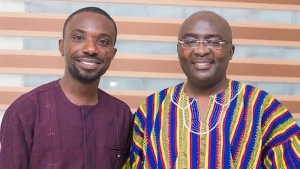The Search for Milo’s Successor – Lessons to Be Learned From the Last Three Coaches
It is that time again. Yes, almost two years have passed since Milovan Rajevac was hired to coach the Black Stars. And like the two coaches before him, he chose to seek greener pastures after nearly two years at the helm and after helping Ghana to an impressive showing in a major tournament. Now speculation is rampant about who the GFA will hire next.
I’ve read those who believe that it would be best to hire a local coach and others who think that a foreign coach would be better. I share the opinion of the GFA, that such arbitrary criteria should not be used, but that the best available coach should be hired. However, I think that the GFA needs to consider what has happened in the last six years with the coaches they have hired for Ghana.
On the positive side, the last three full-time coaches (Rajevac, LeRoy, and Dujkovic) have done very well with the squad. Their critics may argue otherwise, but remember that the Black Stars had been underachieving for the ten years prior to 2006. The last time that Ghana had made it to an AFCON semifinal was 1996. They have accomplished that in the last two AFCON tournaments along with two consecutive qualifications for the World Cup. In all three cases, the GFA chose a coach who was successful previously (Rajevac and Dujkovic for Serbian clubs, LeRoy with Cameroon). The GFA stuck with the coaches even after poor results, and this continuity in coaching helped to produce good performances in the last two World Cups.
Another positive point is that the GFA has hired Ghanaian assistant coaches to partner with the foreign coaches, and has allowed these assistants to coach the youth teams and local Black Stars on occasion. This has provided valuable experience to Ghanaian coaches, one of whom coached Ghana to the U-20 title and is now coaching Rwanda. To my knowledge, he is the only Ghanaian coach who is coaching outside of Ghana.
But what went wrong? In each case, the GFA signed the coaches to two year contracts, and waited until after major tournaments to begin negotiating a new contract. In each case, the coach did well with the Black Stars, and because of this, teams from all over the world wanted to hire them when the tournament was done, although Dujkovic claims to have quit for personal reasons. This may have been excusable for Dujkovic and LeRoy, who only did well with Ghana for one tournament (2006 WC and 2008 AFCON). But Milovan Rajevac was successful in all his endeavours (qualifying, 2009 CHAN, 2010 AFCON, 2010 WC). They should have locked him up for a long term contract after taking an injury-depleted team of youngsters to the 2010 AFCON final. They didn’t, preferring to wait to see how the Black Stars performed at the World Cup, and subsequently he rejected a new contract and took a more lucrative offer in Saudi Arabia.
Another problem that arose with Milovan Rajevac, and possibly led to his departure, is that his agent was also representing Ghanaian players. It is a clear conflict of interest when the agent of a national team’s coach also represents players of that nation.
So what can we learn from this? First, the GFA has shown good judgment in its selection of coaches. In each case, they have hired a coach who has done very well. Second, the current system, even though foreigners have been hired as head coaches, seems to be providing Ghanaian coaches with valuable experience. Third, the GFA needs to stop being commitment-shy by hiring coaches for two year contracts and then failing to secure a contract renewal. The Black Stars need continuity, and getting a new coach every two years is not helping. Choose a coach and sign him to a four year deal. If he is a failure after two years, fire him and hire a new coach. But the GFA’s judgment thus far has been stellar and they need to trust their judgment this time around. Fourth, make sure that there is not a conflict of interest by selecting a coach who has the same agent of Ghanaian players. The coach should only be interested in putting the best team on the field for Ghana, not in repaying favors to an agent.
So who should the GFA pick? They need to look for a man of integrity, who is interested in coaching Ghana for the long haul. Don’t hire an opportunist who will abandon Ghana and sell themselves to the highest bidder when they have the opportunity. They should consider his coaching history and previous appointments in their evaluation. If they choose a Ghanaian, it should be someone who is not influenced by tribalism. They should look for a good disciplinarian, someone who is able to motivate the squad to play together as a team and command their respect. It should be someone with previous successful coaching experience (sorry, Desailly). You don’t trust a new driver with a Cadillac. But if he wants to be involved, hire him as an assistant or as a coach for one of Ghana’s youth teams.
Based on the last three coaches they have hired, I am confident that the GFA will make another good decision for who they hire to coach the Black Stars. But I hope that this scenario does not repeat itself in two years time, with the Black Stars impressing at the 2012 AFCON, and their coach departing for greener pastures.
Philip Mensah
philip_mensah_81
ghanablackstars.wordpress.com
Sports Features of Wednesday, 29 September 2010
Source: Philip Mensah
The Search for Milo’s Successor
Entertainment











